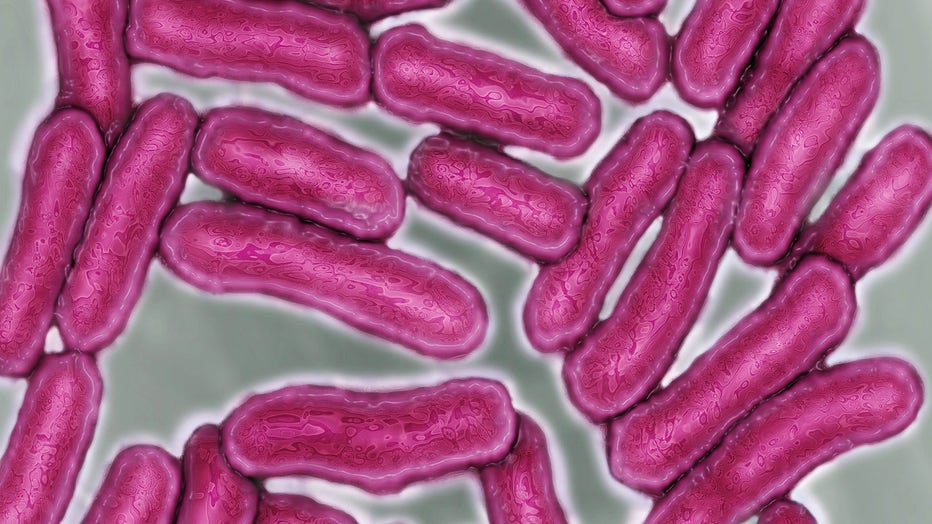CDC warns of deadly drug-resistant salmonella after more than 250 people develop illness
CDC warns of deadly drug-resistant salmonella after more than 250 people develop illness
A new strain of salmonella that has sickened more than 250 people and left two dead may not respond to the recommended antibiotics used to treat the foodborne illness, the US Centers for Disease Control and Prevention warned in a new report.
CINCINNATI - A new strain of salmonella that has sickened more than 250 people and left two dead may not respond to the recommended antibiotics used to treat the foodborne illness, the US Centers for Disease Control and Prevention warned in a new report.
From June 2018 to March 2019, approximately 255 people in 32 states became ill from the multi-drug resistant bacteria, identified as Salmonella enterica serotype Newport. A total of 60 people were hospitalized and two died from the infection, according to the CDC's Morbidity and Mortality Weekly Report.
The infections were linked to consumption of soft cheese obtained in Mexico and beef in the United States, indicating that the strain could likely be present in cattle in both countries, the CDC stated in its report.

Salmonella bacteria responsible for salmonella is shown under optical microscopy X 1000. (Photo by: BSIP/Universal Images Group via Getty Images)
Health officials said 89 of those infected had recently traveled to Mexico.
The CDC said the outbreak strain had "emerged recently" and had not been detected before 2016. The strain did not react to ciprofloxacin and had "decreased susceptibility" to azithromycin — two antibiotic drugs commonly prescribed to treat salmonella infections.
Related: FDA urges consumers not to purchase or feed any pig ear treats to pets over salmonella concerns
Infections are caused by the bacteria salmonella, and most people develop symptoms within 12 to 72 hours after ingesting contaminated food. Symptoms typically include diarrhea, fever, abdominal cramps, chills, headache, nausea or vomiting.
The CDC estimates that salmonella causes about 1.2 million illnesses each year in the United States, with about 450 people dying from the infection. Most people recover without treatment, but those with severe illnesses may need antibiotics or hospitalization.
"To prevent infection, consumers should avoid eating soft cheese that could be made with unpasteurized milk," the CDC advised. "When preparing beef they should use a thermometer to ensure appropriate cooking temperatures are reached: 145 degrees Fahrenheit (62.8 Celsius) for steaks and roasts followed by a 3-minute rest time, and 160 degrees Fahrenheit (71.1 Celsius) for ground beef or hamburgers."

